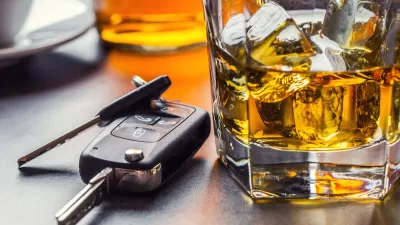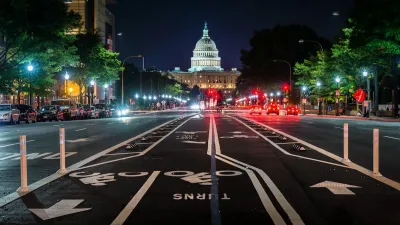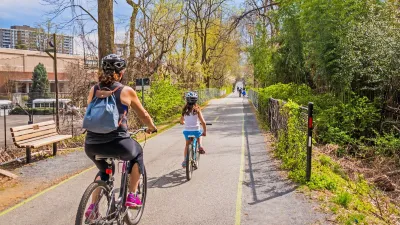Traffic safety is an emerging issue in China, and officials are treating drunk driving, the cause of more than 50% of traffic fatalities, severely - so much so that a new business is flourishing: chauffeur service.
While the thrust of the article is describing the new chauffeur service, also stimulated by the traffic control measure of doubling the parking rates in downtown Beijing, it describes the greater issue of road safety in China.
"With the number of cars on Chinese roads tripling in the past five years, the government has begun a crackdown on drunken driving, imposing stiff prison sentences.
The number of traffic accidents (sic) in China rose 36 percent, to 3.9 million in 2010, resulting in one death every nine minutes, according to the Public Security Ministry.
China implemented its first road safety traffic law in 2004, mandating helmets for motorcyclists and seat belts for passengers in the front seat."
Exact fatality rates appear to be difficult to verify. According to China Daily, "the China Automotive Technology Research Center said (in 2010) that traffic deaths dropped 28 percent from 2004 to 2009, with 67,000 deaths in 2009."
FULL STORY: Crackdown on drinking in China boon for chauffeurs

Manufactured Crisis: Losing the Nation’s Largest Source of Unsubsidized Affordable Housing
Manufactured housing communities have long been an affordable housing option for millions of people living in the U.S., but that affordability is disappearing rapidly. How did we get here?

Americans May Be Stuck — But Why?
Americans are moving a lot less than they once did, and that is a problem. While Yoni Applebaum, in his highly-publicized article Stuck, gets the reasons badly wrong, it's still important to ask: why are we moving so much less than before?

Using Old Oil and Gas Wells for Green Energy Storage
Penn State researchers have found that repurposing abandoned oil and gas wells for geothermal-assisted compressed-air energy storage can boost efficiency, reduce environmental risks, and support clean energy and job transitions.

Safe Streets Funding in Jeopardy
The Trump administration is specifically targeting bike infrastructure and other road safety projects in its funding cuts.

Six Reasons Why Housing Is a Human Right
Is housing a human right? A law professor shares six reasons why it should be, from its role in protecting other rights to global recognition and U.S. legal traditions. As public support grows, could housing be the next right written into law?

Updating LA’s Tree Rules Could Bring More Shade to Underserved Neighborhoods
A new USC study finds that relaxing Los Angeles’ outdated tree planting guidelines could significantly expand urban tree canopy and reduce shade disparities in lower-income neighborhoods, though infrastructure investments are also needed.
Urban Design for Planners 1: Software Tools
This six-course series explores essential urban design concepts using open source software and equips planners with the tools they need to participate fully in the urban design process.
Planning for Universal Design
Learn the tools for implementing Universal Design in planning regulations.
Heyer Gruel & Associates PA
City of Moreno Valley
Institute for Housing and Urban Development Studies (IHS)
City of Grandview
Harvard GSD Executive Education
Salt Lake City
NYU Wagner Graduate School of Public Service
City of Cambridge, Maryland





























